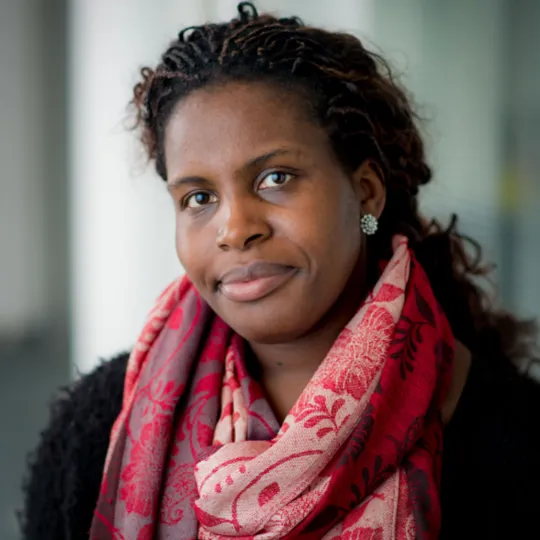King's College London, the National Institute for Health and Care Research (NIHR) BioResource and Genomics England have launched a new collaborative research programme focused on improving our knowledge and understanding of health conditions and their unique impacts on UK Black communities.

The Improving Black Health Outcomes (IBHO) BioResource, jointly led by the Institute of Psychiatry, Psychology & Neuroscience at King's College London, NIHR BioResource and Genomics England, is dedicated to studying health conditions in people from Black communities in the UK.
The team is inviting individuals from Black communities to participate in research specifically aimed at improving our understanding of how these communities develop and experience health conditions. The project will facilitate research across a range of areas:
- Sickle Cell disease
- Mental health
- Diabetes
- Cardiovascular disease
- Kidney disease
- Environment and lifestyle
Historically, there has been an under-recruitment of Black people in health research, meaning much of what we know about many health conditions is usually based on White populations. Representation is crucial, as research findings may not always be applicable to groups outside of those included in studies, meaning that the development of new assessment tools, treatments and services might not necessarily benefit everyone. The IBHO BioResource aims to address this gap and improve Black health outcomes by including more Black people in health research.
I am delighted that King's College London are part of this innovative and collective effort with our partners, who have come together to improve our understanding of health conditions and their impacts on people from Black communities in the UK. This is long overdue, but so very much welcomed.
Dr Juliana Onwumere, Principal Investigator and Reader in Clinical Psychology at King's IoPPN
Sickle cell focus
Sickle cell is more prevalent among Black populations. According to the Sickle Cell Society, the genetic trait for sickle cell is found in one in four West Africans and one in 10 African Caribbeans and is significantly less common in White Europeans. It is also a condition that is under-researched, meaning current treatment options are limited.
The initial focus of clinical recruitment for IBHO BioResource is on sickle cell patients. The team is working with Genomics England to build a world-leading sickle cell genomics research resource. Genomics England are supporting the recruitment of sickle cell patients from across the UK via participating clinics, with patients invited to join the IBHO BioResource and given the option to join the National Genomic Research Library (NGRL) - one of the richest genomic datasets in the world for both rare disease and cancer research. Patients have the option to decline joining the NGRL but still sign up to the IBHO BioResource.
September is Sickle Cell Awareness Month. The team is working alongside the Sickle Cell Society to help raise awareness of the IBHO BioResource and the need for more research into sickle cell.
Des, an IBHO BioResource Volunteer, said: "If this study helps us understand how sickle cell disease affects the African Caribbean Community, it will be really helpful. By collecting specific information, we can potentially create better treatments and support systems for our community.
"This could improve the quality of life for individuals and help reduce health inequalities. In the long run, it means healthier lives, more awareness about the disease, and better medical research."
Stephanie, an IBHO BioResource Volunteer, said: "It couldn't have been easier to join. I chose to because there's a lack of awareness when it comes to sickle cell and it's not given the focus it deserves considering the number of people living with it. I want to help change that, which can only happen through research. Improving health outcomes for Black people is also important to me, given we're disproportionately affected by multiple conditions. If I can play some small part in helping to change that it would mean a lot to me."









